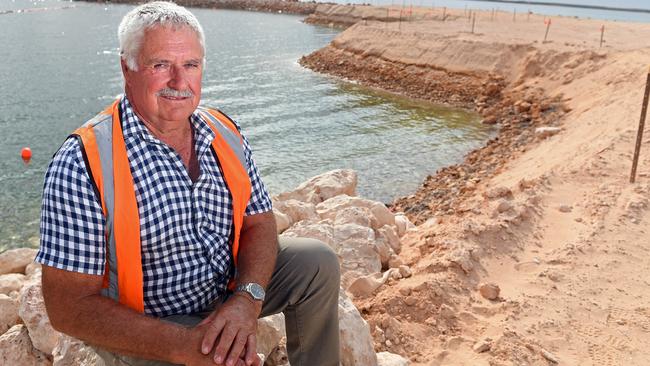Fishing facility set to bring big savings for industry
A new multi-million fish unloading facility will save fishing trawlers tens of thousands of dollars a year, days of unproductive time at sea and futureproof the Ceduna region’s economy.
SA News
Don't miss out on the headlines from SA News. Followed categories will be added to My News.
- Air passengers key to boosting bush fortunes
- ‘Logical’ export hub plan a Murray Bridge game-changer
- READ MORE: Fair Go for our Regions
- Why the EP needs a deep sea port
- Get rail back on track or we’re totally trucked
A new multi-million fish unloading facility will save fishing trawlers tens of thousands of dollars a year, days of unproductive time at sea and futureproof the Ceduna region’s economy.
But the council has raised concerns the project is running over budget partly because the former state government gave with one hand and took with the other.
Ceduna mayor Perry Will said the previous state government recouped much of its $1.5 million funding commitment through charges, fees and a broken promise.
Instead of giving the council a 100-year-lease on land needed for the project it was instead asked to buy it. The current State Government did not respond to requests for comment.
Growth in mining and grain exports from the Thevenard wharf, which is the state’s second busiest port, has come at the expense of the fishing industry.
The original cost for the facility, which will also include space for recreational fishers and be capable of expanding to include fish processing, was estimated at $9.656 million.

Council general manager of operations Grant Drummond, said the project was expected to cost about $12 million.
“We have grant funding of $6.33 million mainly from the Federal Government and council is fronting almost $5 million,” Mr Drummond said.
“This is the keystone for the industry to get back to Ceduna, but there are so many more opportunities to value-add to that.”
Bulk export vessels with gypsum, salt, grain, mineral sands and general cargo now have priority use of the wharf.
It means fishing companies have the choice to wait for wharf access, or go to Port Lincoln or Port Adelaide to unload their perishable catch.
Mr Will said both options could affect seafood freshness and quality.
Raptis and Sons told the council that diversions incur extra fuel costs and lost fishing time, estimated at $29,500 for each trip to Port Lincoln, and $39,960 per trip to Port Adelaide.
The impact on the industry from the lack of a dedicated offloading facility is estimated at over $5 million a year. “Ceduna needs that to diversify away from agriculture,” he said.


